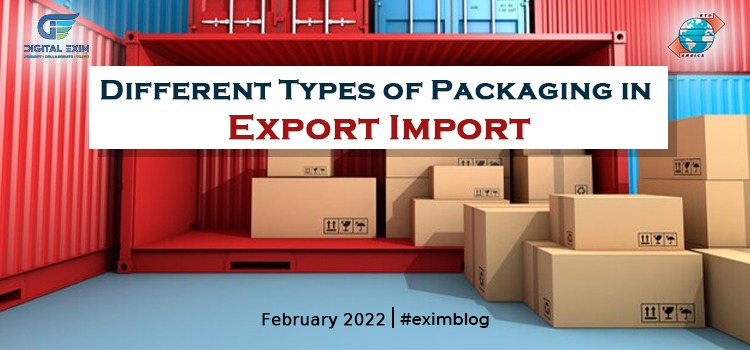Packages play an important role in the perceived value of a product. They contain, protect, and preserve product in addition to aiding in the handling and presentation of it. Packages can be done by the export company or by an outside packaging company. Learn how to start a business with import export courses online and take a move towards opening your import export business. It is essential for exporters to keep four potential problems in mind when designing a shipping crate for international shipping: breakage, moisture, leakage, pilferage, and excessive weight. Exporters should take into account the demands of international shipping when designing their export shipping crates. The large number of packaging options available today can sometimes make it difficult to choose the right packaging for your product. Companies around the world spend a significant amount of money on creating the right package for their products.
Importance of Packaging-
- The importance of packaging is reflected in companies’ overall marketing efforts. A high quality and attractive package make the public perceive the product inside in a positive light, win customer trust, and positively influence purchase decisions.
- Designing and creating packaging is the act of wrapping or containing the product so as to ensure protection, easy handling, and storage.
- Packages can be designed to provide convenience for distribution, handling, display, sale, opening, use, and reusing.
- Having a unique package allows a product to stand out. By using colors, shapes, graphics, etc., you can design a package that is unique and distinct.
- In terms of product packaging, a good package is an indication of the product’s quality. It is a promotional tool, which enables the marketer to communicate the message to the final consumer.
Types of Packaging-
1 Boxes and Crates-
Boxes for packaging are solid and covered on all sides so that items remain secure. On the other hand, crates typically have their sides open, but their tops and bottoms solid.
2 Paperboard boxes-
To produce it, fibrous materials from wood or recycled waste paper are turned into pulp, then bleached. There are several grades of cardboard packaging, each of which is suitable for different packaging requirements. It is lightweight yet strong.
3 Corrugated boxes-
It is commonly known as cardboard boxes. There are also different types of corrugated boxes depending on their durability and strength.
4 Plastic boxes-
It is important to use airtight plastic packaging containers in order to preserve food quality and eliminate contamination. Additionally, plastic packaging does not break easily and can be stored with food in extreme conditions.
5 Clipboard packaging-
Chipboard packaging is a cost-effective packaging option for products from industries such as electronics, medical, food, beverages, and cosmetic. Chipboard is made of reclaimed paper stock and can easily be cut, folded, and formed.
6 Poly bag- This is one of the most common types of packaging and it can contain various products including food, flowers, waste, chemicals, magazines, etc. It is structurally simple to make poly bags, making it possible to completely customize the design, style, and size, but remain cost-effective. In addition, poly bags can also be recycled, depending on the construction. Poly bags are durable yet lightweight, flexible and reusable.
7 Bottles and Jars-
Bottles and jars offer outstanding product protection when they are stacked or transported. They come in a variety of materials, including: Glass, Plastic, Tin, Ceramic. You can find high-quality containers for essential oils, candles, food, etc.
Factors influencing packaging decisions-
- Protection
- Security
- Cost
- Mode of Transport
- Wood Packaging
Conclusion-
Generally, packaging refers to the act of wrapping or bottling products to make them safe from damage during transportation and storage. It keeps a product safe and marketable while also identifying, describing, and promoting it. Packaging also creates a preference for a product. To know more about logistic and shipping join export import training by Digital Exim. You can also join our live free webinar and learn import export online with us. To join click the link below. https://chat.whatsapp.com/Bqz4SWH55nSGtKj3GnJAC8 Do visit our website for more!








